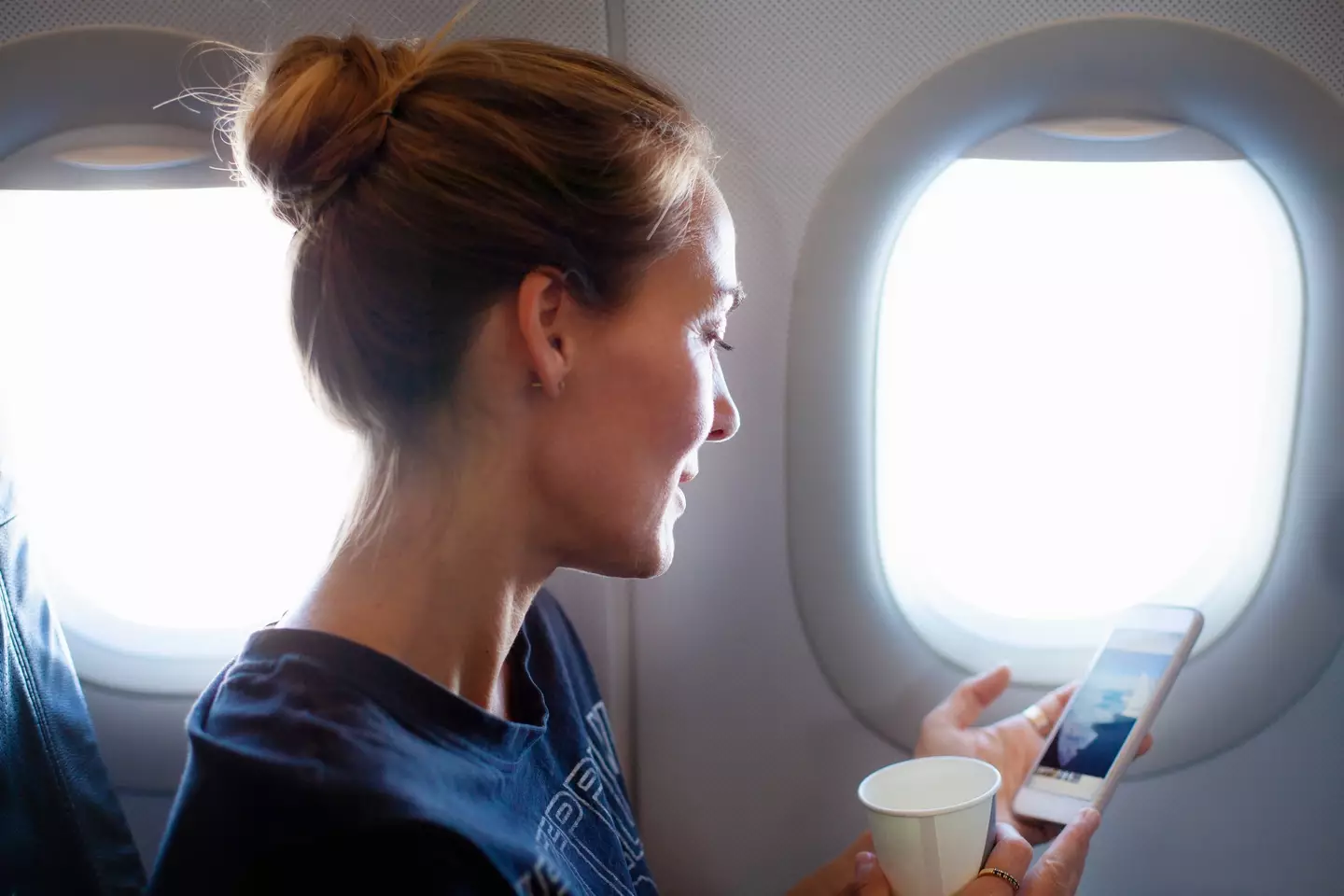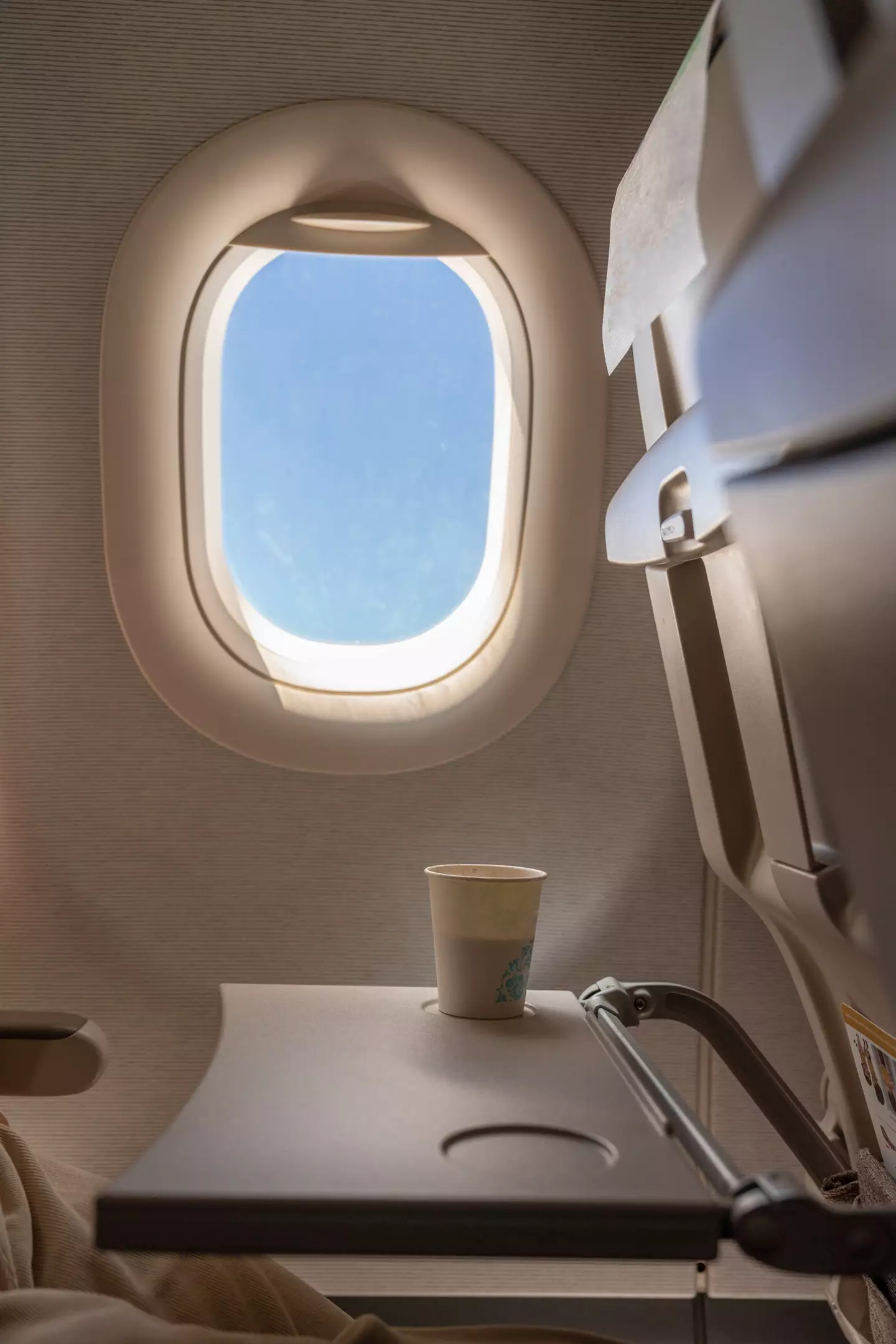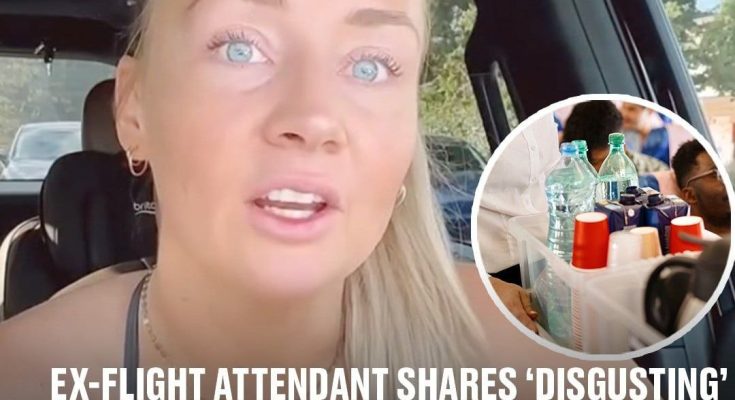We’ve all heard the rumours about what you should and shouldn’t consume on a plane, but now, one former flight attendant has delved deeper into the items you ‘should never drink’ onboard.
Kat Kamalani is a digital creator and an ex-flight attendant and recently took to her Instagram to warn followers about what to avoid.

One former flight attendant has revealed what you should and shouldn’t consume on a plane (Getty Stock Photo)
“Rule number one – never consume any liquid that is not in a can or a bottle,” said Kat.
“The reason being is because those water tanks are never cleaned and they are disgusting.
“So talk to a fight attendant and we rarely, rarely drink the coffee or tea that comes from the same water tank, and so when you’re drinking that coffee and tea it comes from that hot water, and it’s absolutely disgusting.”
Kat claimed that the machines used to make the tea and coffee were rarely cleaned unless they were broken, adding: “So pro tip for all you parents – never ask for hot water and put it in your baby’s bottle.”
Despite the advice, other flight attendants commented on the clip to disagree with Kat’s claims.
One wrote: “I’m a current flight attendant and have been drinking the coffee or tea every flight. Can you imagine how sick us flight attendants would be if this was true?”
While another said: “I heard directly from an aircraft maintenance technician that the water tanks are cleaned regularly and the water inside is safe to drink.”
And a third added: “My sons a flight attendant he says it’s perfectly fine to drink the coffee or tea.”
“Not true… I am a flight attendant and have been for 25 yr and I have had coffee and tea almost every day I work,” said a fourth.

One expert has said tea and coffee is safe to drink (Getty Stock Photo)
Whether it’s ‘safe’ to drink the tea and coffee served on a plane has always been a topic of conversation among frequent flyers.
According to Vance Hilderman, who is chief technical officer of aviation development and certification company, AFuzion, the water is ‘100 percent’ safe to drink.
“There’s a chemical rinse they put in (the tanks). It’s not toxic. It’s not industrial hospital quality, but it’s actually quite good. It’s very doubtful that bacteria would survive. It’s equivalent to air filtering systems, HEPA systems on aircraft,” Hilderman told USA Today.



